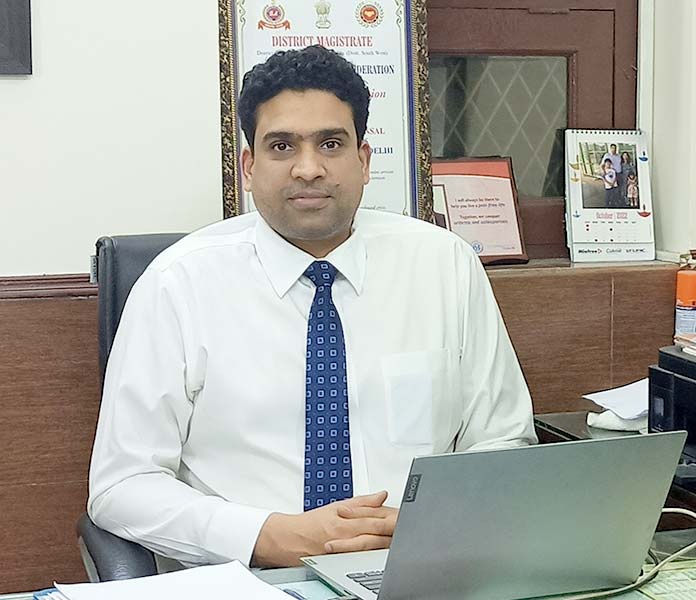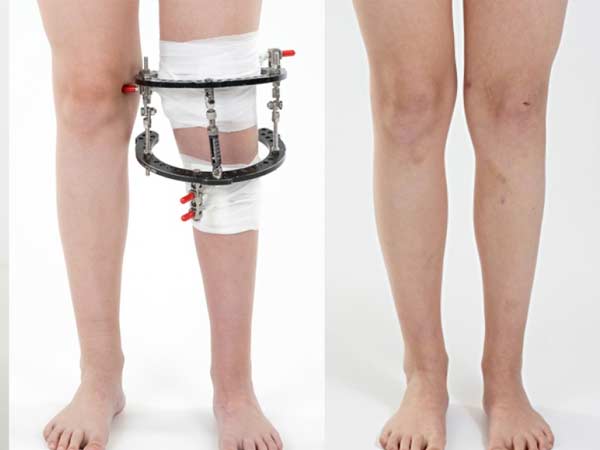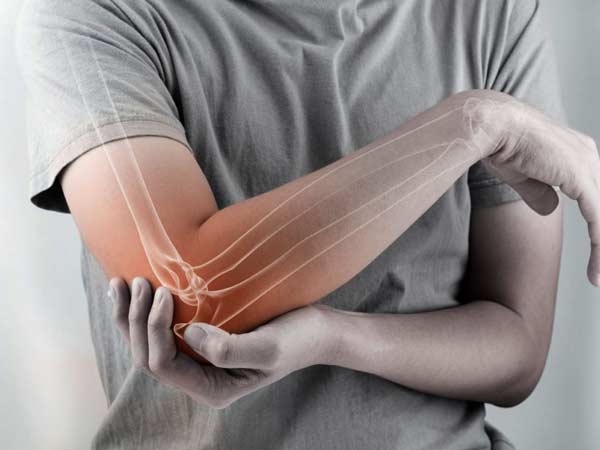What is elbow replacement surgery in Delhi?
During the elbow replacement surgery in Delhi, the two sides of the joint are replaced by implants, with or without cement. The humeral and ulnar components are made of metal and polyethylene. The elbow joint is usually open at the back and the muscles retracted. The worn surfaces are removed from the joint and the humerus and ulna are prepared to accommodate the components which are usually cemented inside the bone.
The shoulder, elbow and wrist prostheses are made of metal alloy and polyethylene (plastic), they restore mobility and alleviate or eliminate pain. The purpose of elbow replacement surgery in Delhi is to create a new, perfectly mobile joint while eliminating pain due to contact between the bones. Your orthopaedic surgeon in Delhi will choose a total or partial arthroplasty depending on your state of health and taking into account the degree of impact of arthritis on the joint.

The elbow consists of three parts (humerus, ulna and radius) which provide two types of movement. The humerus and ulna articulate to ensure a hinge movement. The humerus and the radius ensure rotational movement. The surfaces of the joint are covered with cartilage which serves as elastic resistance (cushion effect) between the bones. Cartilage can wear out due to various events such as a fracture, osteoarthritis, rheumatoid or inflammatory arthritis. When rheumatoid arthritis has damaged the joint, the cartilage is not sufficiently lubricated. This results in loss of mobility and pain in the elbow.
Elbow replacement surgery in Delhi benefits from recent technological advances with completely new surgical instruments offering surgeons a greater variety of options to relieve pain and restore joint functions.
As in the case of total knee and hip replacement, the cartilage and the elbow bone are replaced by an artificial implant. Given the concentration of nerves, vessels and soft tissue in this area, the elbow is a complex joint.
Reasons for Elbow Replacement (Indications)
The common reason for doing an elbow replacement surgery in Delhi is pain that affects the activities of daily living. This is followed by the instability of the elbow and ankylosis (fusion) of the elbow. The underlying disorders that cause the above problems are Rheumatoid Arthritis, Osteoarthritis, post-traumatic arthritis, and other inflammatory conditions.
Pre-operative Assessment before Elbow Replacement
This involves assessment for fitness, having surgery and anaesthesia. You may have x-rays done, to assess the problem. Some blood tests, rule out infection in some instances.
The procedure of Total Elbow Replacement Surgery in Delhi
The elbow joint is approached from the back. A skin incision is made and the tissues are carefully dissected. A nerve called the ulnar nerve is identified, dissected and secured. The muscle-tendon complex at the back is carefully reflected off the bone, to approach the actual joint. The joint surface is prepared and the two components, the humeral component, and the ulnar component are inserted and linked together with a coupling.
It lasts about 1 to 2 hours depending on the surgical method. Generally, the patient is hospitalized for 4 to 5 days after the operation. The length of this stay however depends on several factors. Your surgeon will be able to advise you.
After Elbow Replacement Operation
Your arm will be covered with dressings and elevated in bed. Orthopedic in Delhi will advise you to mobilize as much as you can tolerate. You may have a nerve block, to numb the pain. You may be advised, not to lift heavy weights after the procedure.
The clips or sutures are usually removed in ten days’ time.
In the appropriate patient, the success rate has been reported to be very good (approx. 92%). But it is important for the patient to discuss the pros and cons of the procedure with the orthopaedic surgeon in Delhi, before having it done.







